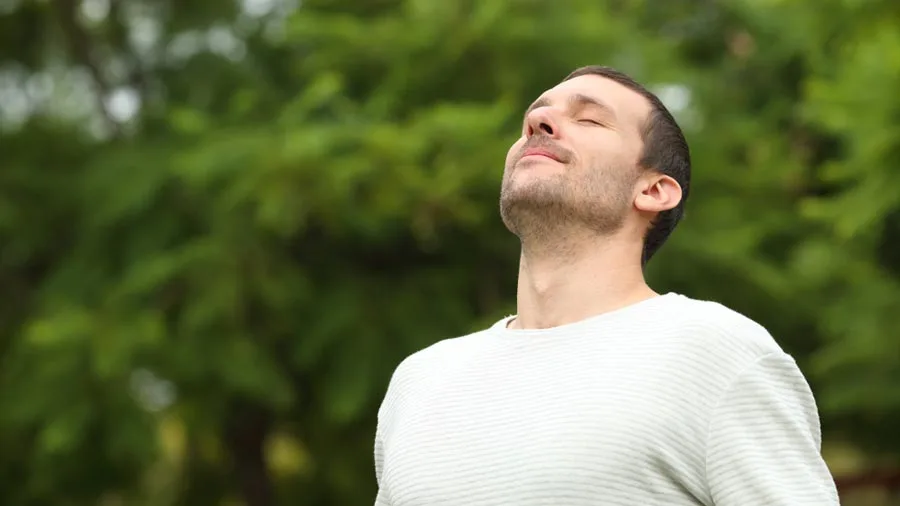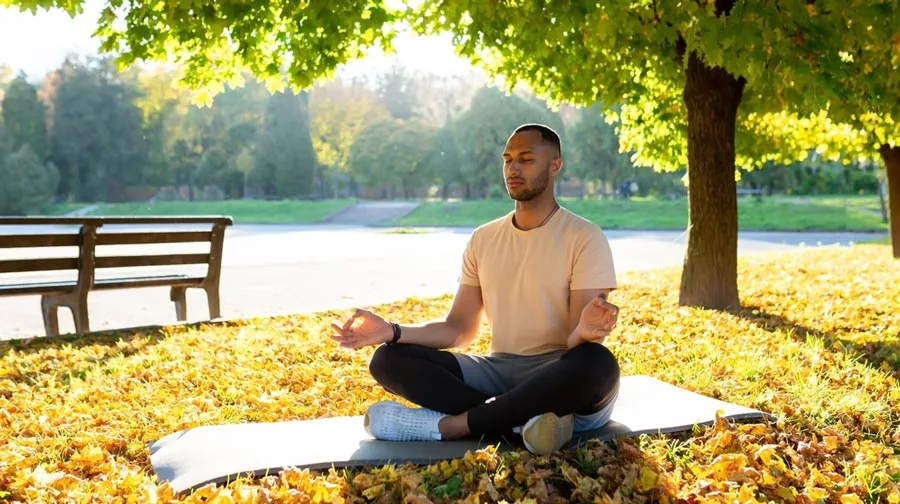Resources and Practical Approaches to Recovery from Catalina
What is mindfulness and how does it apply to recovery from addictive substances? Mindfulness in recovery teaches you to live in the present moment with your physical experience. This is beneficial because many individuals with substance use disorders because life stresses trigger thoughts and emotions that increase the risk of relapse.
Mindfulness teaches you to focus on your physical presence, giving you control over these compulsive thoughts and emotions. Sounds great, doesn’t it? But just how do you learn and effectively use the skills of mindfulness in recovery?
At Catalina Behavioral Health, mindfulness is just one of the many skills we’ll help you learn for your recovery journey. You’ll leave our facility feeling empowered by the newfound control over compulsive thought patterns and emotional reactivity. With mindfulness and other tools in your toolbox, setting yourself up for long-term sobriety and success after rehab has never been easier!
Get Effective Mental Health Treatment Options – Call Now!
What is Mindfulness?
Mindfulness is a practice that has been around for thousands of years. While its history is associated with religion, mindfulness simply describes sitting and observing quietly. Mindfulness can look a little different depending on the specific technique. Some people slowly inhale and exhale, focusing on their breathing and the way that their chest moves, whether during breath work or daily activities. Others quietly observe their thoughts or their body, focusing on what is happening without judging it or giving it meaning.
Practicing mindfulness helps you learn to exist in the present moment. As you become more aware of your experience, rather than all that is going on around you, it leads to a deeper understanding and connection with yourself. It is also sometimes called Vipassana meditation, which is meditation with a focus on gaining insight into yourself.
When used as part of addiction recovery, mindfulness increases your chance of success. This is because, unlike other organs, the brain is a muscle that can learn new things when it is exposed to them through practice. As you learn to use mindfulness, it can benefit emotional regulation, avoid cravings, better manage urges to use drugs or drink, and raise your level of awareness of how substance use disorder has impacted your life.
Mindfulness vs Meditation

Mindfulness and meditation are both useful tools that can benefit the handling of psychological distress and overwhelming emotions. In individuals undergoing addiction treatment, these practices also share the benefits of greater self-awareness, decreased stress reactivity, and reduced risk of addiction relapse.
The major difference between these practices is the focus. Mindfulness focuses on the body and all that is happening around us, while meditation focuses on calming the mind and inner stillness.
Treating Addiction with Mindfulness-Based Recovery
Mindfulness and addiction recovery go hand-in-hand. As you practice mindfulness meditation, it can be used as a useful tool for self-reflection. The control that you exercise over your thoughts makes you feel empowered in a way that can help you avoid acting on compulsive or harmful thoughts and avoid drug and alcohol cravings.
Furthermore, mindfulness-based interventions are proven effective at improving the outcome of addiction treatment.
3 Proven Benefits of Mindfulness in Recovery
Mindfulness-based stress reduction is an effective tool for substance abuse treatment. As you practice mindfulness exercises at home or in clinical settings, thoughts can exist without you feeling you must act on them or feel a certain way. Here are some of the benefits of mindfulness-based interventions as part of your recovery journey.
1) Learning to React and Recover from Stress in a Healthy Way
Many people resort to substance abuse as a way to escape the anxiety and stresses of daily life. However, it’s important to remember that our anxiety or other feelings about a situation are not caused by reality- they are caused by the way that we perceive it.
Mindfulness training is a way to be aware of the present moment without experiencing the negative emotions you might associate with it. This can help you challenge false assumptions, handle distressing thoughts, and engage in mindfulness-based relapse prevention.
2) Support in Managing Cravings and Relapse Prevention
One of the reasons that mindfulness meditation is so effective for addiction treatment is the power and awareness that you learn to have over your thoughts. As you learn to observe your thoughts without feeling or acting on them during recovery, you learn a critical skill that can help you observe your thoughts if you do experience cravings.
Furthermore, mindfulness practices help with depression and anxiety, improve mental health, and promote better quality sleep. Improved mental health and better sleep are both things that will make the recovery process a little easier.
3) Cultivate a Foundation for Long Term Recovery

Mindfulness is a useful tool for mental health as well as in addiction recovery. Individuals who undergo mindfulness-based cognitive therapy, dialectical behavior therapy, or other mindfulness-based therapies have better treatment outcomes. The incorporation of meditation and mindful perspectives is also a consistent feature reported by our many former clients at Catalina who have achieved long-term recovery success.
This is true for the treatment of anxiety disorders, addictive disorders, and other mental health problems as well. Individuals practicing mindfulness also experience things like improved decision-making, better cognitive function, stress reduction, improved self-esteem, and a generally positive outlook on life.
Mindfulness also improves relationships with others. It allows you to view conflicts in an objective light and remove your emotions from the situation. Mindfulness encourages compassion and helps us see the world from new perspectives, too.
Finally, mindfulness practices have benefits for physical health. Deep breathing exercises promote healthy relaxation and better sleep, which encourages physical health. Some healthcare professionals even use it to help treat chronic pain in patients.
Get Accredited Treatment Programs at Catalina – Reach Out Now!
Will Mindfulness Really Help Me in Addiction Recovery?
Yes, mindfulness in recovery can be an incredibly valuable tool for long-term recovery. Many people do not realize that the recovery process is something that takes a lot of work. It is not enough to just not drink or use drugs- sobriety is a life-long journey.
Often, it involves a great deal of self-reflection, identifying intrusive thoughts that might drive you to use, and having coping skills to handle emotional distress and the stresses of everyday life positively.
How to Start Practicing Mindfulness Techniques

Below, you’ll find several techniques that can help you get started with incorporating mindfulness practice into your life. These techniques can be used at home, work, or anywhere really. They are not limited to clinical practice.
In addition to these suggestions, practicing mindfulness activities is also beneficial. For example, listen to music and just enjoy it without analyzing the lyrics or tempo or color and pay attention to the sound as the pens or pencils move across the page.
Focus on Your Breathing– Mindful breathing is one of the easiest mindfulness strategies and a great place to start. Sit or lie down somewhere that you can be comfortable. Then, take several deep, intentional breaths. As you breathe, focus on the way that air fills your belly and diaphragm and then leaves as you exhale. Avoid paying attention to your thoughts as you do this. If you do get distracted, gently push those thoughts away and return your focus to conscious breathing. This technique works well because you can do it anywhere and taking breathing breaks throughout the day is a great way to flex that mindfulness muscle.
Make a Habit of Being Present– Living in the present moment is something many of us struggle with in the action-packed world we live in. If you’ve ever felt like you are moving through life on auto-pilot, you are not alone. To change this, start consciously bringing your mind back to the present. Listen to the sounds of the knife on the cutting board when chopping vegetables and feel how the soap moves over your hands as you wash dishes. Pay attention to your footfalls and breaths while walking instead of daydreaming. Be present when you are spending time with your family instead of thinking about what you have to do next. When you find yourself distracted, redirect your thoughts back to the present moment. This will get easier the more that you practice it.
Learn to Recognize Your Thoughts for What They Are– People often let their thoughts get the best of them, especially those struggling with substance use disorders. For people in addiction, even harmful ideas and negative thoughts can be hard to ignore. However, thoughts are only thoughts. They may influence emotions and behaviors, but they can only do that when you choose to respond. As you learn to observe thoughts without emotionally reacting to them, you have a greater awareness of the control you have over-reactivity to these thoughts.
We Accept Most Major Insurance Providers – Call Now!
Learn Mindfulness and Other Recovery Skills at Catalina
While you can read up on mindfulness exercises at home, mindfulness can be hard to practice on your own. But there is still hope. At Catalina Behavioral Health in Arizona, we offer comprehensive treatment programs for addiction recovery that include things like individual and group therapy, art therapy, mindfulness techniques, and more.
By learning mindfulness practices, developing healthy habits, and learning to identify triggers, patterns, and addictive behavior, recovery becomes much easier at Catalina. Don’t hesitate to give us a call today. Our facility offers evidence-based treatments and programs that work!





